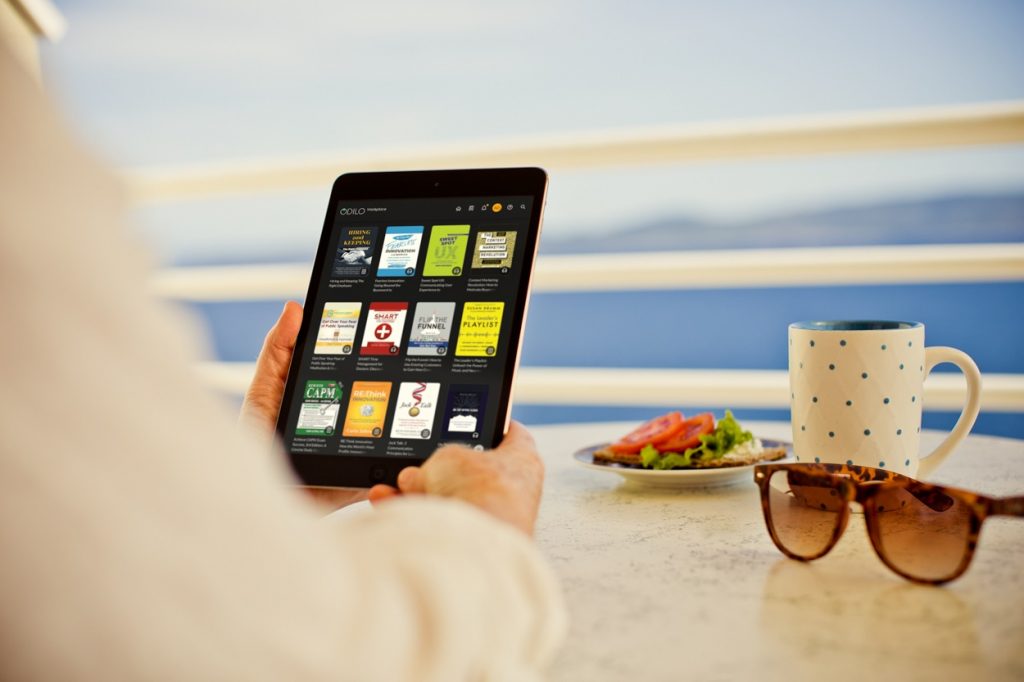Categories:
I Observatory of digital learning in Spain’ by ODILO
- The e-book is the educational resource most consulted by school and high school students (91%), corporate students (60%) and undergraduate and graduate students (60%), followed by audiobooks and training courses.
- The computer is the most widely used device in all digital education formats, except in the case of audiobooks and magazines, where consumption through smartphones and tablets is more common.
- Spanish students prefer afternoons to mornings: 5 p.m. is the peak time for digital learning in Spain.
- The personalization of learning experiences and programs and access to a wide variety of formats and resources have had an impact on user engagement levels, reflecting a 3 to 5 fold increase in learning habits, with 100% of users active in voluntary learning and 11 minutes of voluntary learning per day.
Madrid, December 2022.- E-books are the preferred digital educational resource for Spaniards in 2022, ahead of audiobooks, training courses and videos, according to the ‘I Digital Learning in Spain Observatory’ by ODILO, the Spanish scale-up that allows any organization in the world to create their own unlimited learning ecosystems tailored to their needs.
Specifically, according to the Observatory, e-books have been the most consumed among school and high school students, with 91% of the hours dedicated to education through this format, but also among professionals who bet on their continuous development in companies (60%), and among university and graduate students (60%).
In second place are audiobooks, with 2% amongst university and graduate students, 6% in the case of schools and colleges, and up to 20% for corporate students. Consumption of training courses, the bronze medal format, is 11% among corporate students, although it does not exceed 1% among students at universities or educational institutions.
The computer is the most widely used medium in all formats, except for audiobooks and magazines.
In terms of devices, the computer is ahead of smartphones and tablets as the support most used by Spanish people when it comes to learning. Regardless of the format, the computer holds the gold medal in 2022. Its highest peak of use is found among those who prefer training courses (70%), followed by videos (54%), newspapers (48%) and e-books (47%).
Only for audiobooks and magazines, where consumption on computer is respectively 42% and 45%, is consumption higher on smartphones and tablets, 53% for audiobooks and 50% among those who consume magazines.
If we look at the medium by type of student, university and graduate students use the computer most as a learning device, with up to 82% of their total consumption. They are followed by corporate students, with a consumption of 52%, and primary, secondary and high school students, where consumption on this support is also predominant, although it drops to 42%.
Spaniards prefer to study in the afternoons slightly more than in the mornings
Regarding the best time to study, users in the country are more likely to do so in the afternoon than in the morning. The Observatory establishes three time slots, night, morning and afternoon, among which the afternoon is the time that encompasses most of the consumption of digital educational content in our country.
In the case of videos (49% of consumption hours are in the afternoon) pull ahead of audiobooks (46%), e-books (44%), magazines (41%) and educational courses (40%). Newspapers are the only format whose consumption is higher in the mornings (46% of consultations) compared to the afternoons (37%). As for those who prefer to learn in the evenings, the range of consumption varies between 18% and 23% for all formats.
In this line, the Observatory concludes that 17:00h is the peak study time for those who consume training courses, e-books and videos; while those who listen to audiobooks prefer to do so preferably at 16:00h and those who consult newspapers and magazines tend to do so at 18:00h and 20:00h respectively.
For its part, ODILO points out that the personalization of learning experiences and programs and access to a wide variety of formats and resources have had an impact on user engagement levels, reflecting a 3 to 5-fold increase in learning habits, with 100% of users active in voluntary learning and totaling 11 minutes of voluntary learning per day.
ABOUT ODILO
ODILO is a B2B2C company which has created a new category in the education market: Unlimited Learning Ecosystems. The firm allows any organization to create its own fully customized learning ecosystems, and offer its users unlimited access to the world’s largest catalog of educational content and create all kinds of learning experiences without restrictions. In addition, through the use of Artificial Intelligence, ODILO enables the creation of unique learning paths and experiences for both organizations and users.
More than 8,500 organizations in 52 countries – including governments in Europe, North America, Latin America, Southeast Asia, Australia and Africa; academic leaders such as Peking University and top companies such as Vodafone, Nestlé and Banco Santander – have already created Unlimited Learning Ecosystems from the more than 3.9 million pieces of content available on the platform. In total, ODILO is part of the learning experiences of more than 170 million users worldwide.
